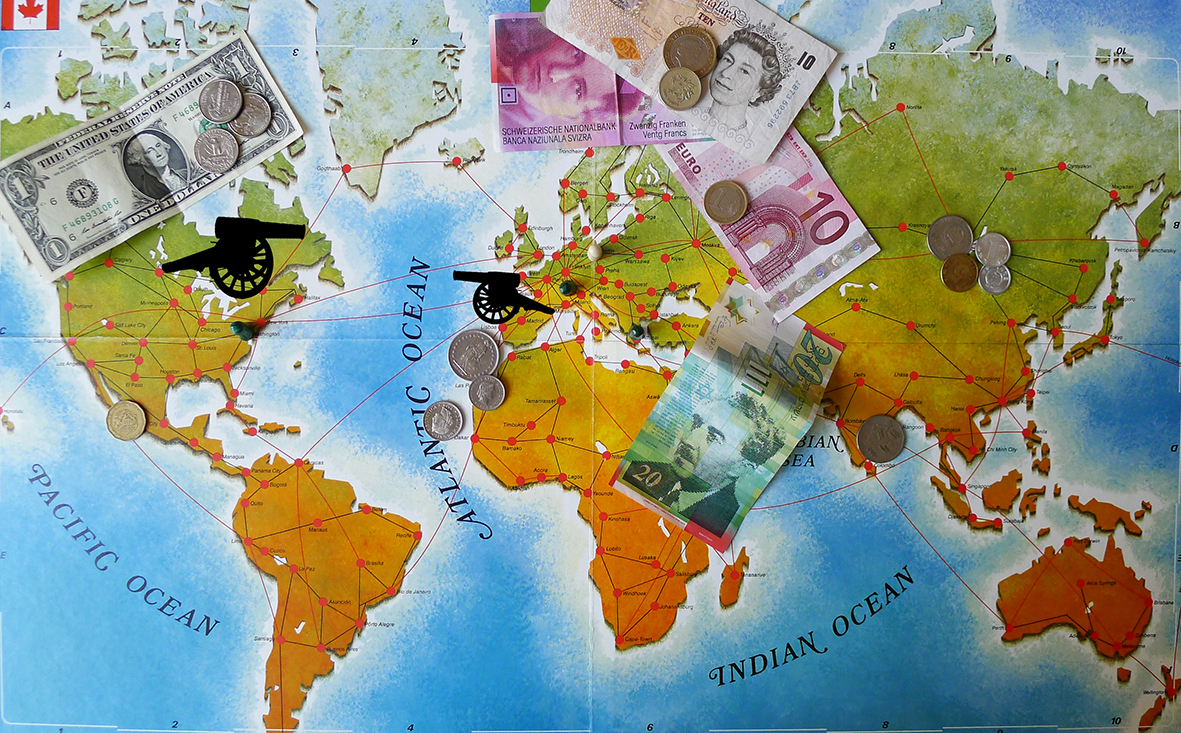

Currency war, also known as competitive devaluations, is a condition in international affairs where countries seek to gain a trade advantage over other countries by causing the exchange rate of their currency to fall in relation to other currencies. Not only does the threat of a trade war impact the day-to-day of the currency markets, it is also related to a currency war where countries devalue their own currency so exports can be sold cheaper overseas in order to jumpstart the economy at home. The problem with currency wars – just like trade wars – is that more often than not there are no winners.
Much like trade war, currency wars can have unintended consequences. The devaluation of one currency can be used as a tool to fight trade practices between that country and another, but there are usually other casualties. This is how the term currency war originated. Former Brazilian Finance Minister Guido Mantega coined the term in 2010 when referring to competition between the United States, China, and other countries to have the lowest valued currency. The U.S. lowered rates and it sent money into emerging markets. This pushed up the cost of Brazil’s commodity exports, making the economy less competitive. Brazil had been a casualty in what Mantega called a currency war.
As the world’s largest economies open up a new front in their increasingly acrimonious game of brinkmanship, the consequences could be dire -- and ripple far beyond the US and Chinese currencies. Everything from equities to oil to emerging-market assets is in danger of becoming collateral damage as the current global financial order is assailed from Beijing to Washington. Risk assets and oil prices would likely tumble as worries about growth arise, hitting currencies of commodity-exporting countries particularly hard -- namely, the Russian ruble, Colombian peso and Malaysian ringgit -- before taking down the rest of Asia.
The present currency war started in January 2010. The problem with currency wars is that all advantage is temporary and is quickly erased by retaliation. Trading partners retaliate with their own devaluations. Currency cross-rates end up back where they started, with costs imposed due to the uncertainties. Not only is the world not better off but it is worse off because of the costs and uncertainty resulting from the currency manipulations. Once countries realize that currency wars don’t work, they turn quickly to trade wars through tariffs and other trade barriers.
With recent political shifts, especially in the U.S., some countries appear more willing to openly use their currencies as leverage in a global trade. The fallout from such moves can rattle markets, whipsaw capital flows, and fuel volatility. Some countries, including China, use currency pegs to stabilize their exchange rates since currency fluctuations create uncertainty and can crimp investment. There's a debate about how long the world’s economies can fight, and how they might make peace in the currency wars.
To receive new articles instantly Subscribe to updates.